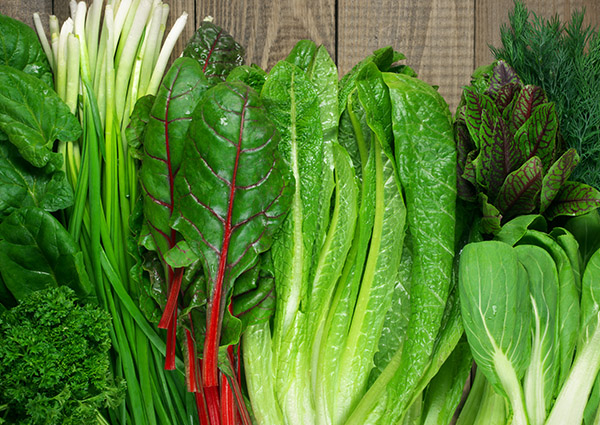
How Fruit & Veggies Really Impact Heart Health
By the Numbers
A recent study showed that 1 in 7 cardiovascular deaths were caused by not eating enough fruit, and 1 in 12 were caused by not eating enough veggies. The importance of produce in our diet is unmistakable.
How much is enough? A 2017 study published in the International Journal of Epidemiology, showed 10 servings, or 5 cups, a day lowers the risk of cardiovascular disease by 28 percent, and the risk of premature death by 31 percent.
What Produce and How it Helps
Leafy greens: Includes collard greens, mustard greens, kale, chard, spinach, bok choy, arugula, endive, amaranth, watercress, beet greens and radicchio. Leafy greens provide vitamin K, which protects arteries and promotes healthy blood clotting and reduced blood pressure.
Berries: These little sweethearts of the fruit family are antioxidant-rich and are especially full of anthocyanin, which protects against oxidative stress and inflammation, both of which are big contributors to coronary-vascular disease or CVD.
Avocados: Besides being rich in potassium, avocados reduce cholesterol and lower heart disease risk.
Tomatoes: Tomatoes have been shown to reduce the risk of heart disease and stroke, as well as increase the “good” cholesterol, mostly due to their lycopene. This is an antioxidant that neutralizes harmful free radicals and prevents oxidative damage and inflammation.
Beets: This superfood features nitrates, which are known to significantly lower blood pressure. This is a major boost for heart health.
Pumpkin: Don’t limit pumpkins to Halloween and Thanksgiving! They are rich in both heart-healthy fiber and magnesium.
Cruciferous veggies: This group that includes broccoli, cauliflower, cabbage and Brussels sprouts is full of flavonoids and carotenoids and linked to a decrease in blood vessel disease.
Chili peppers: These lil hotties have capsaicin, an anti-inflammatory, antioxidant that excels at regulating blood glucose. A 2020 study of over half a million people found that those who eat chili peppers had a 26 percent lower risk of CVD mortality than those who never consume them.
All fruits and veggies feature fiber, and that means lowered cholesterol and blood pressure and improved blood vessel function.
So, increasing your intake of produce will boost your heart and overall health. And for best results, think rainbow…the more colorful the variety you eat, the better.





